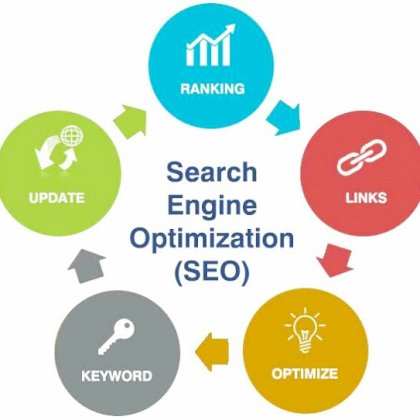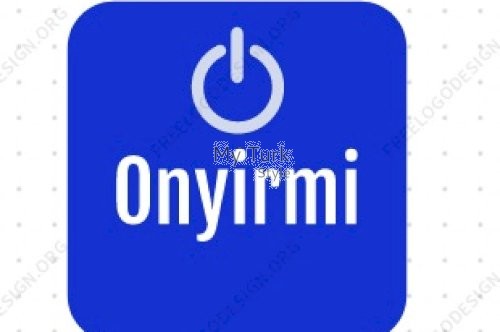Android App Development Software.Powerful Coding Environment

android app development software Android app development software is a crucial tool for creating and building applications for the Android operating system. It provides developers with a wide range of features and functionalities to design, develop, and test their apps efficiently. With the increasing demand for mobile applications, the need for effective software solutions has become paramount. These development tools offer various capabilities, including coding, debugging, and integrating different elements to create high-quality applications. Additionally, they come equipped with user-friendly interfaces and support multiple programming languages, enabling developers to easily navigate and utilize the software. In today's technologically advanced world, android app development software plays a vital role in shaping the mobile app landscape.
In today's digital age, mobile applications have become an integral part of our daily lives. Whether we need to order food, book a ride, or connect with our loved ones, there's an app for almost everything. Android, being the most widely used operating system for mobile devices, provides immense opportunities for developers to create captivating and functional applications.
So, what exactly is Android app development software? In simple terms, it refers to the tools, frameworks, and programming languages that enable developers to build Android applications. Android app development software provides a platform for developers to unleash their creativity and bring innovative ideas to life.
One of the key components of Android app development software is the Android Software Development Kit (SDK). It is a collection of software tools, libraries, and documentation that provides everything a developer needs to create, test, and debug Android applications. The SDK includes the Android Studio Integrated Development Environment (IDE), which is the official IDE for Android development.
When it comes to programming languages, Java is the recommended language for Android app development. Java is a robust, object-oriented programming language that offers a wide range of features and libraries specifically designed for building Android applications. With its extensive community support and vast ecosystem, Java provides a solid foundation for developers to build high-quality Android apps.
Additionally, Kotlin has emerged as a popular alternative to Java for Android app development. Kotlin is a modern, concise programming language that offers enhanced productivity and readability compared to Java. It seamlessly integrates with existing Java code, making it easier for developers to adopt and migrate their projects to Kotlin.
Another essential aspect of Android app development software is the use of application programming interfaces (APIs). APIs allow developers to access various system functionalities and services, such as camera, location, and notifications, within their applications. By leveraging APIs, developers can create feature-rich and interactive applications that provide a superior user experience.
Now, let's dive into the world of Android app development software and explore the limitless possibilities it offers. From designing captivating user interfaces to implementing complex functionalities, Android app development software empowers developers to turn their ideas into reality.
In conclusion, Android app development software plays a crucial role in enabling developers to create innovative and user-friendly applications for the Android platform. By utilizing tools like the Android SDK, programming languages like Java and Kotlin, and leveraging APIs, developers can build captivating and functional Android apps. So, if you have an idea for the next big Android app, grab your development tools and embark on an exciting journey to bring it to life.
Choosing the Right Software for Android App Development
Developing an Android app requires careful consideration and planning, especially when it comes to choosing the right software. With the plethora of options available, it can be overwhelming to make the best decision for your project. However, by understanding your specific needs and considering the following factors, you can select the most suitable software for your Android app development.
1. Compatibility and Integration
One of the first things to consider when choosing software for Android app development is compatibility. Ensure that the software you choose supports the version of Android you are targeting. Additionally, look for software that integrates well with other tools and frameworks you might be using in your development process, such as IDEs (Integrated Development Environments) and APIs (Application Programming Interfaces).
2. Ease of Use
Having user-friendly software can greatly impact your development experience. Look for software that provides an intuitive interface and easy navigation. This way, you can save time on learning complex functionalities and focus more on the actual development process.
3. Customization Options
Every app development project is unique, and having software that allows for customization is essential. Look for software that offers flexibility in terms of layout design, user interface customization, and code editing. This way, you can tailor your app according to your specific requirements and create a unique user experience.
4. Performance and Stability
Performance and stability are crucial factors that can determine the success of your Android app. Select software that provides efficient resource management and optimization capabilities. This will ensure that your app runs smoothly and doesn't lag or crash, providing a seamless user experience.
5. Community Support and Updates
Choosing software with an active community and regular updates is essential for staying up-to-date with the latest trends and developments in Android app development. A strong community can provide valuable support, resources, and guidance, while regular updates ensure that any bugs or security vulnerabilities are addressed effectively.
Conclusion
In conclusion, selecting the right software for Android app development is crucial to the success of your project. By considering factors such as compatibility, ease of use, customization options, performance, and community support, you can make an informed decision that aligns with your specific requirements. Remember to use natural language and include relevant keywords throughout your content for improved SEO. Happy app development!
Key Features of Top Android App Development Software
Android app development software plays a crucial role in creating successful and user-friendly applications for Android devices. With numerous options available in the market, it's essential to choose the right software that meets your requirements. In this article, we will discuss the key features that top Android app development software should possess.
1. User-Friendly Interface: The software should have an intuitive and easy-to-use interface, allowing developers to navigate through the tools and features effortlessly. This helps in speeding up the development process and ensures a smooth workflow.
2. Cross-Platform Compatibility: Android app development software should offer cross-platform compatibility, enabling developers to create applications that work seamlessly on multiple devices and operating systems. This ensures wider reach and accessibility for the app.
3. Extensive Library of Templates and Components: A comprehensive library of templates and components is essential for efficient app development. It saves time and effort by providing pre-built UI elements and modules that can be easily customized to suit the app's design and functionality requirements.
4. Powerful Coding Environment: The software should provide a robust coding environment that supports various programming languages, including Java and Kotlin. It should offer features like code completion, debugging capabilities, and integrated development environments (IDEs) to enhance productivity and streamline the coding process.
5. Efficient Testing and Debugging Tools: Testing and debugging are crucial stages in app development, and the software should offer a range of tools to simplify these processes. It should enable developers to perform unit testing, automate testing scenarios, and identify and fix bugs efficiently.
| Key Features | Description |
|---|---|
| 1. User-Friendly Interface | The software should have an intuitive and easy-to-use interface. |
| 2. Cross-Platform Compatibility | The software should offer cross-platform compatibility. |
| 3. Extensive Library of Templates and Components | The software should provide a comprehensive library of templates and components. |
| 4. Powerful Coding Environment | The software should offer a robust coding environment. |
| 5. Efficient Testing and Debugging Tools | The software should provide testing and debugging tools to simplify the development process. |
In conclusion, choosing the right Android app development software is crucial for creating successful applications. The software should have a user-friendly interface, cross-platform compatibility, an extensive library of templates and components, a powerful coding environment, and efficient testing and debugging tools. By considering these key features, developers can streamline the development process and create high-quality Android apps.
Comparing Different Android App Development Tools
When it comes to developing Android apps, choosing the right development tool is crucial for the success of your project. With so many options available in the market, it can be overwhelming to make a decision. In this article, we will compare different Android app development tools and help you choose the best one for your needs.
Native Android Development
One of the most popular ways to develop Android apps is using native development tools. Native tools like Android Studio and Java language provide a robust environment for building high-performance apps. Native development allows developers to have full control over the app's functionality and design.
Additionally, native development offers access to a wide range of libraries and resources, making it easier to leverage advanced features of the Android platform. However, native development can be time-consuming and requires expertise in Java programming language.
Cross-Platform App Development
If you want to develop apps that run on multiple platforms, cross-platform app development tools are the way to go. These tools allow developers to write code once and deploy it on multiple platforms, including Android, iOS, and Windows.
Popular cross-platform development tools like React Native and Flutter provide a seamless development experience and allow developers to build highly performant apps with native-like user interfaces. These tools use JavaScript or Dart programming languages, making it easier for web developers to transition into mobile app development.
App Inventor Tools
If you are new to app development and want a more beginner-friendly option, app inventor tools can be a great choice. These tools provide a visual programming interface, allowing users to drag and drop components to create apps without writing code.
Google's App Inventor and MIT's Scratch are popular app inventor tools that offer a simplified development experience. These tools are ideal for prototyping and developing simple apps quickly. However, they may not offer as much flexibility or customization options as native or cross-platform development tools.
Conclusion
Choosing the right Android app development tool depends on your specific project requirements and expertise. If you prioritize performance and full control over the app, native development tools like Android Studio and Java are excellent choices. For cross-platform compatibility and faster development, tools like React Native and Flutter are highly recommended. Beginners can start with app inventor tools like App Inventor and Scratch for a user-friendly development experience.
Remember, selecting the right development tool is just the first step. It is essential to stay updated with the latest trends and best practices in Android app development to create successful and user-friendly apps.
Best Practices for Android App Development Software
When it comes to developing an Android app, it is essential to follow the best practices to ensure a smooth and successful process. In this article, we will explore some key tips and strategies to help you excel in Android app development.
1. Stay Updated with the Latest Android Versions and Features
Android is an ever-evolving platform, with new versions and features being released frequently. As an app developer, it is crucial to stay updated with these changes, as they can significantly impact your app's performance and compatibility. Regularly check the Android developer website and forums to stay informed about the latest updates.
2. Optimize Your App for Speed and Performance
Users expect apps to be fast, responsive, and perform well on their devices. To meet these expectations, optimize your app for speed and performance. This includes efficient memory management, minimizing network requests, and using appropriate data structures and algorithms. Regularly test your app's performance on different devices to identify and address any bottlenecks.
3. Implement Proper Error Handling and Reporting
No matter how well you develop your app, errors and bugs are inevitable. However, how you handle and report these errors can make a significant difference in user experience. Implement a comprehensive error handling system that provides informative and user-friendly error messages. Additionally, incorporate crash reporting tools to track and fix any issues that may arise.
4. Follow Material Design Guidelines
Google's Material Design guidelines provide a set of principles and best practices for creating visually appealing and intuitive user interfaces. Adhering to these guidelines not only ensures a consistent and professional appearance but also improves usability and user satisfaction. Take the time to familiarize yourself with Material Design and incorporate its principles into your app's UI.
5. Secure Your App and User Data
With the increasing concerns about data security, it is essential to prioritize the security of your app and the user data it handles. Implement secure coding practices, such as secure network communication, data encryption, and proper authentication and authorization mechanisms. Regularly test your app for vulnerabilities and keep up to date with the latest security practices.
6. Optimize Your App's SEO
While SEO is primarily associated with websites, it can also be beneficial for app development. Optimize your app's listing in app stores by using relevant keywords in the app title, description, and tags. This can improve your app's visibility and attract more organic traffic. Additionally, consider incorporating deep linking strategies to enhance your app's discoverability.
| Best Practice | Description |
|---|---|
| Regularly update your app | Keep your app up-to-date with the latest Android versions and features. |
| Optimize app performance | Ensure your app is fast, responsive, and optimized for different devices. |
| Error handling and reporting | Implement a comprehensive system to handle and report errors. |
| Follow Material Design guidelines | Create visually appealing and intuitive user interfaces following Material Design principles. |
| Secure your app and user data | Implement secure coding practices to protect user data and enhance app security. |
| Optimize app's SEO | Use relevant keywords and incorporate deep linking strategies to improve app visibility. |
Conclusion
In conclusion, following the best practices for Android app development software is crucial for success. By staying updated with the latest Android versions, optimizing performance, implementing proper error handling, adhering to Material Design guidelines, securing your app and data, and optimizing SEO, you can create high-quality apps that meet user expectations and achieve optimal results.
For more information about Android app development software, visit (title).
Step-by-Step Guide to Using Android App Development Software
Are you interested in developing your own Android apps but don't know where to start? Look no further! In this comprehensive guide, we will take you through the step-by-step process of using Android app development software.
Step 1: Choose the Right Software
The first step in developing Android apps is to select the right software for the job. There are several options available, but we recommend using Android Studio. It is the official Integrated Development Environment (IDE) for Android app development and offers a wide range of powerful features.
Step 2: Install Android Studio
Once you have decided on using Android Studio, the next step is to install it on your computer. Simply visit the official Android Studio website and follow the instructions to download and install the software. Make sure your system meets the minimum requirements for running Android Studio.
Step 3: Set Up Your Development Environment
After successfully installing Android Studio, it is important to set up your development environment. This involves configuring the necessary software components, such as the Java Development Kit (JDK), Android SDK, and device emulators. Don't worry, Android Studio provides step-by-step setup instructions to make this process easier.
Step 4: Familiarize Yourself with Android Studio
Before you start developing your first Android app, take some time to familiarize yourself with the Android Studio interface. Explore the various panels, menus, and tools available. Understanding the layout of Android Studio will greatly assist you throughout the development process.
Step 5: Create a New Project
Now it's time to create your first Android app project. Android Studio provides a user-friendly wizard that guides you through the necessary steps. Choose a suitable project name, select the target Android device, and specify other project configurations as needed. Click "Finish" to create your project.
Step 6: Design the User Interface
The user interface (UI) is an important aspect of any app. Android Studio offers a visual layout editor that allows you to design your app's UI. Drag and drop UI elements, customize their properties, and arrange them as desired. Take advantage of Android Studio's intuitive interface to create an appealing and user-friendly UI.
Step 7: Write the App Code
With your UI in place, it's time to start writing the code for your app. Android apps are primarily developed using the Java programming language. Android Studio provides an intelligent code editor that assists you with syntax highlighting, error checking, and code completion. Write the necessary code to implement the desired functionality of your app.
Step 8: Test Your App
Testing is a crucial step in the app development process. Android Studio allows you to run your app on a device emulator or an actual Android device for testing purposes. Use this feature to identify and fix any bugs or issues in your app. Ensure that your app functions smoothly and meets the desired requirements.
Step 9: Build and Distribute Your App
Once you are satisfied with your app's functionality and performance, it's time to build and distribute it. Android Studio provides options to generate the APK file, which is the installation file for Android apps. You can then distribute your app through various channels, such as the Google Play Store or your own website.
Step 10: Keep Learning and Improving
App development is an ongoing learning process. Stay updated with the latest trends and advancements in Android app development. Join online communities, attend workshops or courses to enhance your skills. Continuously improve your app by incorporating user feedback and addressing any issues that arise.
Following this step-by-step guide will set you on the path to becoming a successful Android app developer. Remember to stay persistent, be creative, and never stop learning. Happy coding!
Common Challenges and Solutions in Android App Development Software
In today's fast-paced digital world, mobile applications play a crucial role in our daily lives. Among the various mobile operating systems, Android stands out as the most popular and widely used platform. However, developing a successful Android app comes with its own set of challenges. In this article, we will discuss some common challenges faced by developers in Android app development software, along with effective solutions to overcome them. 1. Compatibility Issues: One of the major challenges in Android app development is ensuring compatibility across multiple devices, screen sizes, and operating system versions. As Android devices come in a wide variety of configurations, it becomes essential to test and optimize the app for different platforms. To overcome this challenge, developers can use responsive design techniques, test on real devices or emulators, and make use of frameworks like Xamarin or Flutter that provide cross-platform compatibility. 2. Fragmentation: Another challenge in Android app development is the fragmentation of the Android ecosystem. With numerous device manufacturers and versions of the operating system, developing apps that function seamlessly across all Android devices can be a daunting task. To address this challenge, developers should focus on designing flexible layouts that adapt to different screen sizes, use backward-compatible APIs, and regularly update their apps to support the latest Android versions. 3. Performance Optimization: Performance is a critical factor in the success of an Android app. Slow loading times, laggy navigation, and high battery consumption can lead to a poor user experience. To optimize performance, developers should follow best practices such as using efficient coding techniques, minimizing resource usage, implementing caching mechanisms, and utilizing background services effectively. They can also make use of tools like Android Profiler to identify and resolve performance bottlenecks. 4. Security: With the increasing number of cyber threats, ensuring the security of an Android app is of paramount importance. Developers need to implement robust security measures such as encrypting sensitive data, enforcing secure communication protocols, and implementing user authentication mechanisms. Regular security audits and updates are also crucial to protect the app and its users from potential vulnerabilities. 5. App Store Optimization (ASO): Getting the app noticed among the millions of apps in the Google Play Store is a challenge in itself. To improve app visibility and reach a wider audience, developers should focus on app store optimization. This involves optimizing app metadata, including relevant keywords, appealing app descriptions, and eye-catching icons and screenshots. Developers can also actively seek user reviews and ratings, as positive feedback and high ratings can significantly boost app download numbers. In conclusion, Android app development software comes with its fair share of challenges. However, by approaching them with the right strategies and solutions, developers can overcome these obstacles and create successful and user-friendly Android apps. It is crucial to stay updated with the latest industry trends, continuously learn and improve coding skills, and adapt to the ever-evolving Android ecosystem. With dedication and perseverance, developers can turn these challenges into opportunities for growth and success.
Future Trends in Android App Development Software
Android app development has been evolving at a rapid pace, constantly bringing new possibilities and innovations. As technology advances, it is crucial for developers to stay updated with the latest trends in order to create successful and cutting-edge Android applications.
1. Artificial Intelligence Integration
One of the future trends in Android app development software is the integration of artificial intelligence (AI). AI-powered applications are becoming more prevalent, as they can enhance user experiences and provide personalized recommendations. Through AI, Android apps can learn user behaviors and preferences, leading to better user interactions and improved app performance.
2. Internet of Things (IoT) Compatibility
The Internet of Things (IoT) is revolutionizing the way we live and interact with our surroundings. Android app developers are incorporating IoT compatibility in their software, allowing users to control and monitor various devices through their smartphones. This trend is expected to grow further, with smart homes, wearables, and connected cars becoming increasingly popular.
3. Augmented Reality (AR) and Virtual Reality (VR) Integration
Augmented Reality (AR) and Virtual Reality (VR) technologies have gained significant momentum in recent years. Android app developers are leveraging AR and VR to provide immersive and engaging experiences to users. From gaming and entertainment to education and training, AR and VR integration in Android apps is set to offer endless possibilities.
4. Machine Learning
Machine learning algorithms, combined with big data analytics, are driving advancements in Android app development software. Developers are harnessing the power of machine learning to create apps that can analyze vast amounts of data and make intelligent predictions. This trend enables apps to deliver personalized content, recommendations, and insights, enhancing the overall user experience.
5. Instant Apps
Instant apps have gained popularity due to their convenience and efficiency. Unlike traditional apps, instant apps can be accessed without the need for installation, allowing users to try out the app before committing to a full download. Android app developers are focusing on creating instant apps to provide seamless experiences and attract more users.
6. Progressive Web Apps (PWAs)
Progressive Web Apps (PWAs) are another future trend in Android app development. These apps function similarly to native apps, but they can be accessed through web browsers. PWAs offer offline capabilities, push notifications, and improved performance, making them a cost-effective option for businesses and developers.
7. Enhanced Security Measures
As cybersecurity concerns continue to rise, Android app developers are prioritizing enhanced security measures. From secure biometric authentication to encrypted data storage, developers are implementing robust security protocols to protect user information and ensure safer app experiences.
Conclusion
The future of Android app development software is full of exciting possibilities. With the integration of artificial intelligence, IoT compatibility, AR/VR, machine learning, instant apps, PWAs, and enhanced security measures, Android applications will continue to evolve and enhance user experiences in unprecedented ways. Staying updated with these trends and incorporating them in app development strategies will ensure success in the dynamic world of Android app development.
Frequently Asked Questions
Android app development software is a set of tools and resources that enable developers to create, test, and debug applications for the Android operating system. It includes an integrated development environment (IDE) such as Android Studio, which provides features like code editing, debugging, and performance analysis.
To develop Android apps, you need a computer running a supported operating system (e.g., Windows, macOS, or Linux), Java Development Kit (JDK), Android Studio, and an Android device or emulator for testing.
Java and Kotlin are the primary programming languages used for Android app development. Java has been the traditional language, while Kotlin has gained popularity due to its conciseness, safety features, and interoperability with Java.
Yes, there are visual app development platforms available that allow you to create Android apps without coding. These platforms provide a drag-and-drop interface for building user interfaces and offer pre-built components and templates for app functionality.
Yes, there is a one-time registration fee of $25 to become a Google Play Developer and publish your app on the Google Play Store. However, there may also be additional costs for services like in-app purchases or subscription models.
The steps to publish an Android app on the Google Play Store include creating a Google Play Developer account, preparing your app for release, generating a signed APK, creating a store listing, setting pricing and distribution, and finally, publishing your app.
Yes, you can update your Android app after publishing it on the Google Play Store. You can release updates to fix bugs, add new features, or improve performance. You will need to follow the same steps as the initial app submission process.
Some best practices for Android app development include following the material design guidelines, optimizing app performance and battery consumption, testing on multiple devices and screen sizes, providing localization support, and ensuring app security.
Yes, you can monetize your Android app through various methods such as in-app advertising, in-app purchases, freemium models, or subscription plans. Google AdMob is a popular platform for displaying ads in Android apps.
Yes, there are numerous online resources and tutorials available for Android app development. You can refer to official documentation provided by Google, join developer communities and forums, or enroll in online courses to enhance your skills.
 English
English
 Turkish
Turkish 























